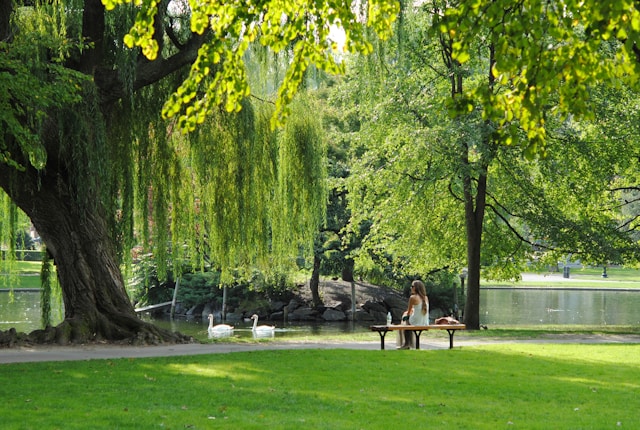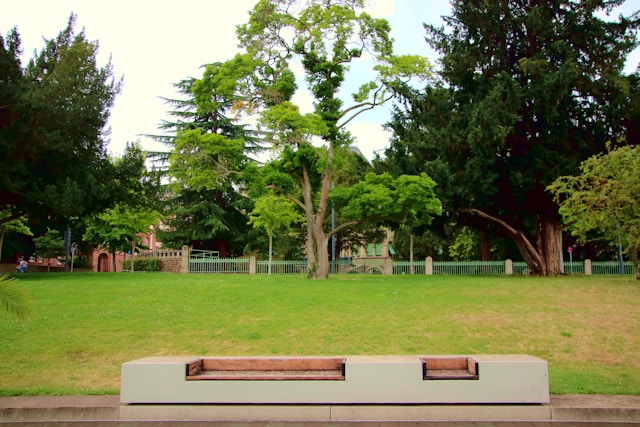Cheney Park Sustainability
In an era where environmental concerns dominate global conversations, local communities are stepping up to create sustainable solutions that enhance the quality of life for their residents. Cheney Park has become a shining example of how grassroots efforts can lead to significant environmental impact. This article explores the sustainability initiatives in Cheney Park and how community engagement is driving change.
Understanding Cheney Park’s Sustainability Vision
Cheney Park is more than just a recreational area; it is a community hub focused on sustainability and environmental stewardship. The vision for sustainability in Cheney Park emphasizes:
- Eco-Friendly Practices: Implementing practices that conserve resources and reduce environmental impact.
- Community Engagement: Encouraging residents to participate in sustainability initiatives to foster a sense of ownership and responsibility.
- Education and Awareness: Promoting understanding of environmental issues and solutions among community members.
Key Sustainability Initiatives in Cheney Park
Several initiatives have been undertaken in Cheney Park to promote sustainability and enhance the community’s environmental footprint. Here are some of the key efforts:

1. Community Gardens
One of the most significant sustainability efforts in Cheney Park is the establishment of community gardens. These gardens serve multiple purposes:
- Local Food Production: Residents can grow their own fruits and vegetables, reducing dependence on store-bought produce and minimizing carbon footprints associated with food transportation.
- Biodiversity: Community gardens encourage biodiversity by attracting pollinators and providing habitats for various species.
- Social Interaction: These spaces foster community bonding, as neighbors collaborate on gardening projects and share knowledge.
2. Sustainable Landscaping
Cheney Park has adopted sustainable landscaping practices that enhance its natural beauty while promoting environmental health:
- Native Plant Landscaping: Utilizing native plants in landscaping reduces the need for irrigation and chemical fertilizers, as these plants are well adapted to local climate conditions.
- Rain Gardens: These gardens are designed to manage stormwater runoff, allowing rainwater to soak into the ground rather than flow into storm drains. This helps prevent flooding and pollution in local waterways.
3. Waste Reduction Programs
Cheney Park has implemented various waste reduction programs aimed at minimizing landfill contributions:
- Recycling Initiatives: Clearly marked recycling bins throughout the park encourage residents to recycle, reducing waste and promoting responsible disposal.
- Composting Programs: Community composting initiatives turn organic waste into nutrient-rich soil, supporting local gardening efforts and reducing the amount of waste sent to landfills.
4. Educational Workshops
Education plays a crucial role in promoting sustainability in Cheney Park. The community regularly hosts workshops and events focused on various environmental topics:
- Sustainability Workshops: These sessions cover topics such as composting, gardening, and water conservation, empowering residents with knowledge and skills to implement sustainable practices in their homes.
- Nature Walks and Talks: Guided nature walks educate participants about local ecosystems, the importance of biodiversity, and conservation efforts in the area.

The Impact of Community Engagement
The success of sustainability initiatives in Cheney Park is largely attributed to strong community engagement. Here are some ways residents are making a difference:
1. Volunteer Efforts
Local residents actively participate in volunteer programs to maintain and improve Cheney Park’s sustainability efforts. This includes:
- Park Clean-Up Events: Regularly scheduled clean-up days bring community members together to pick up litter and maintain the park’s natural beauty.
- Garden Maintenance: Volunteers help tend to community gardens, ensuring they remain productive and vibrant.
2. Collaboration with Local Organizations
Cheney Park has formed partnerships with local environmental organizations, schools, and businesses to enhance its sustainability initiatives. These collaborations include:
- Resource Sharing: Local organizations often provide resources, such as plants or educational materials, to support community efforts.
- Event Co-Sponsorship: Collaborative events draw larger crowds and increase awareness of sustainability issues.
3. Feedback and Participation
Community input is crucial for the success of sustainability initiatives. Cheney Park encourages residents to share their ideas and feedback through:
- Surveys and Forums: Regular surveys gauge community interests and opinions on sustainability efforts, allowing for adjustments and improvements.
- Social Media Engagement: Online platforms serve as a space for residents to connect, share experiences, and promote upcoming events.
The Future of Sustainability in Cheney Park
As Cheney Park continues to evolve, its commitment to sustainability remains steadfast. Future initiatives may include:

- Renewable Energy Projects: Exploring solar energy options for park facilities to reduce reliance on non-renewable energy sources.
- Expanded Educational Programs: Increasing the range of educational workshops to cover more sustainability topics and reach a broader audience.
- Innovative Water Management: Implementing additional water-saving technologies and practices to further reduce water consumption.
Conclusion
Cheney Park exemplifies how community-driven sustainability efforts can create a positive impact on the environment and enhance the quality of life for residents. Through initiatives such as community gardens, sustainable landscaping, and educational programs, the park serves as a model for other communities seeking to embrace sustainability.
As residents continue to engage and collaborate, Cheney Park stands as a testament to the power of grassroots efforts in fostering environmental stewardship. By prioritizing sustainability, the community not only preserves its natural resources but also cultivates a vibrant and resilient future for generations to come.
FAQ
Q: What are some sustainability initiatives in Cheney Park?
A: Key initiatives include community gardens, sustainable landscaping, waste reduction programs, and educational workshops.
Q: How do community gardens benefit Cheney Park?
A: Community gardens promote local food production, biodiversity, and social interaction among residents.
Q: What is the significance of native plant landscaping?
A: Native plants require less water and maintenance, reducing environmental impact and supporting local ecosystems.
Q: How can residents get involved in Cheney Park’s sustainability efforts?
A: Residents can participate in volunteer events, attend workshops, and provide feedback through surveys and forums.
Q: What future sustainability projects are planned for Cheney Park?
A: Future projects may include renewable energy initiatives, expanded educational programs, and innovative water management practices.




